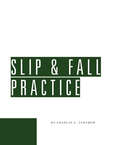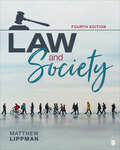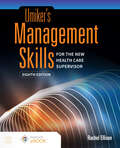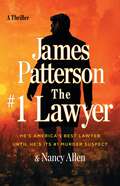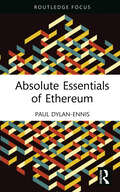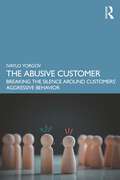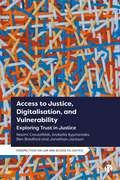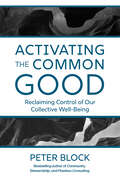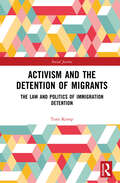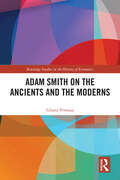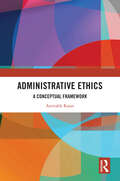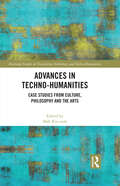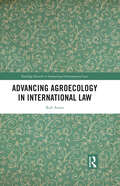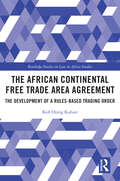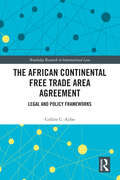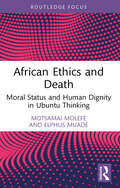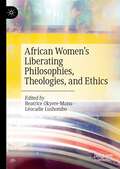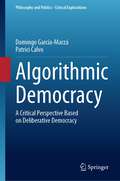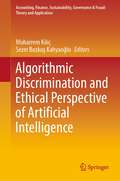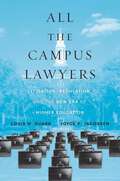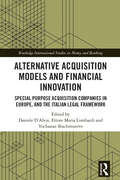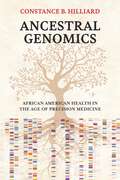- Table View
- List View
Slip & Fall Practice
by Charles TurnbowPlaintiffs' attorneys lose 40% of their slip and fall cases. Failure to prove a causative link between the hazard and a negligent act of the defendant is the number one reason for these high losses. Charles Turnbow, attorney-engineering consultant on over 9,500 slip and fall cases, shows you how to prove causation (and how to efficiently screen out cases lacking it) in his highly-respected toolbook, Slip & Fall Practice: * Analyzing the mechanics of the fall to identify the cause * The most common cases and what they must have to win * Documenting the dangerous condition and the negligence that caused it * Establishing the duty of care * Proving control of the premises * Establishing actual or constructive notice * Showing that the hazard caused the injury Slip & Fall Practice is loaded with case evaluation strategies, illustrative fact patterns (with photos), discovery forms, expert witness checklists, case authorities, building code citations, model pleadings, trial preparation aids, and most important, timesaving and case-winning practice tips.
Law and Society
by Matthew LippmanLaw and Society, Fourth Edition, offers a contemporary overview of the structure and function of legal institutions, along with a lively discussion of both criminal and civil law and their impact on society. Unlike other books on law and society, Matthew Lippman takes an interdisciplinary approach that highlights the relevance of the law throughout our society. Distinctive coverage of diversity, inequality, civil liberties, and globalism is intertwined through an organized theme in a strong narrative. The highly anticipated Fourth Edition of this practical and invigorating text introduces students to both the influence of law on society and the influence of society on the law. Discussions of the pressing issues facing today′s society include key topics such as the law and inequality, international human rights, privacy and surveillance, and law and social control.
Law and Society
by Matthew LippmanLaw and Society, Fourth Edition, offers a contemporary overview of the structure and function of legal institutions, along with a lively discussion of both criminal and civil law and their impact on society. Unlike other books on law and society, Matthew Lippman takes an interdisciplinary approach that highlights the relevance of the law throughout our society. Distinctive coverage of diversity, inequality, civil liberties, and globalism is intertwined through an organized theme in a strong narrative. The highly anticipated Fourth Edition of this practical and invigorating text introduces students to both the influence of law on society and the influence of society on the law. Discussions of the pressing issues facing today′s society include key topics such as the law and inequality, international human rights, privacy and surveillance, and law and social control.
Umiker's Management Skills for the New Health Care Supervisor
by Rachel EllisonWritten for those who have little or no management training, Umiker’s Management Skills for the New Health Care Supervisor comprehensively covers what the new health care supervisor will need to know to be successful in their career. Through real world cases studies, readers gain insight into a supervisor’s day-to-day interactions with patients, colleagues, outside stakeholders, and their employees. Updated throughout to cover the many ongoing challenges of the COVID-19 pandemic on healthcare supervisors and managers, the new Eighth Edition offers an all-new chapter on ethics in the workplace; new materials on the aging workforce and women in health care; virtual meeting, remote jobs, and working from home; different types of mentorships, the increase in importance of value-based care, sexual harassment and the METOO movement; and much more.
The #1 Lawyer
by James Patterson Nancy AllenBiloxi’s best criminal defense attorney has never lost a case. Then his client’s beautiful wife is murdered, and America’s #1 lawyer suddenly becomes its #1 suspect. <p><p> Stafford Lee Penney is a small-town lawyer with a big-time reputation for winning every case he tries. In his sharp suits and polished Oxford shoes, Penney is Biloxi, Mississippi’s #1 Lawyer and top local celebrity. <p><p> Just as Penney notches his latest courtroom victory, his wife is scandalously killed. He spirals into a legal and personal losing streak, damaging his reputation and ruining his career. <p><p> That’s when Penney makes a bold decision. He stops trading on his power-lawyer identity and creates a new one: lawyer lifeguard. Moonlighting at the beach, showing up to court in flip-flops, mentoring a law student, the new Penney is at first unrecognizable. <p><p> It’s said that a lawyer who represents himself has a fool for a client. But when Penney is accused of murder, the #1 Lawyer will find a way to triumph. <p> <b>New York Times Bestseller</b>
75 Jahre Grundgesetz: Wie sich die Gewaltenteilung im Lauf der Zeit verändert hat
by Jochen TheurerDieses aufschlussreiche Buch beschreibt, wo und wie sich die Macht heute in Deutschland tatsächlich verteilt. Obwohl Art. 20 Abs. 2 GG noch genauso lautet wie 1949, hat sich das Verhältnis zwischen Exekutive, Legislative und Judikative zum Teil stark verändert. Beispielsweise ist das Bundesverfassungsgericht im Verhältnis zum Bundestag tendenziell mächtiger geworden und treibt das Parlament durch bahnbrechende Entscheidungen immer wieder vor sich her – vom Recht auf informationelle Selbstbestimmung über das „3. Geschlecht“ bis hin zum Klimaschutz. Zudem spielen internationale Player eine immer größere Rolle: War das Grundgesetz vor 75 Jahren die höchste Rechtsnorm in Deutschland, bestreitet mittlerweile kein Jurist mehr ernsthaft den Vorrang von EU-Recht vor der deutschen Verfassung. Dieser informative Einblick in die komplexe Welt des Rechts stellt anschaulich dar, wie sich der Inhalt von Gesetzen trotz identischem Wortlaut verändern kann.
Absolute Essentials of Ethereum (Absolute Essentials of Business and Economics)
by Paul Dylan-EnnisAbsolute Essentials of Ethereum is a concise textbook which guides the reader through the fascinating world of the emerging Ethereum ecosystem, from the basics of how its blockchain works to cutting-edge applications.Written by an experienced educator, each chapter is designed to progress potential students from class to class. Technical concepts are clearly explained for those new to the topic and readers are supported with definitions and summaries in each chapter. Real-life case studies situate the overviews in a contemporary context. Topics covered include the Ethereum Execution and Consensus layers, Ethereum governance and community, Decentralised Autonomous Organisations (DAOs), Decentralised Finance (DeFi), Non-Fungible Tokens (NFTs) and Layer 2.This book is the ideal text to support undergraduate and postgraduate courses on blockchain technologies, cryptocurrencies, Web3 and fintech, as well as for those who want to know how Ethereum really works.
The Abusive Customer: Breaking the Silence Around Customers’ Aggressive Behavior
by Ivaylo YorgovBreaking the silence around an all-too-common problem, this book offers insights into the triggers of customer aggression against service employees, explores its consequences, and provides practical advice for handling abusive customers and mitigating the damage they inflict. Today, more than half of the world’s population is employed in the service sector. This fundamental economic shift is accompanied by heightened attention to customer service and the ‘customer is always right’ paradigm. But when customers act aggressively, everyone pays a price: frontline employees, their families, their companies, and even the abusive customers themselves. Unlike breezier titles on the subject, this book is based in academic research—exploring the ‘why?’ and ‘when?’ behind abusive behavior—that underpins its practical approach, illustrated with real-world stories from professionals on the front lines of customer service. The book’s useful tools include a sample anti-customer abuse policy and management process, a cheat sheet of practices that work for handling its consequences, a summary of effective service recovery processes and practices, and abuse-handling training list and curriculum templates. Managers and workers in customer-facing roles, in industries such as retail, hospitality, tourism, banking, and contact centers, will welcome this essential resource as part of their efforts to stop aggressive customer behavior, and improve employee morale, job satisfaction, and engagement.
Access to Justice, Digitalization and Vulnerability: Exploring Trust in Justice
by Naomi Creutzfeldt Arabella Kyprianides Ben Bradford Jonathan JacksonThe pandemic has significantly impacted people's engagement with the administrative justice system (AJS). As we navigate the post-pandemic era, the siloed landscape of tribunals, ombuds, advice services and NGOs face the challenge of maintaining trust in the justice system's fairness, efficacy and inclusivity. Examining the journeys individuals undertake to seek justice in housing and special educational needs and disabilities (SEND), this book sheds light on how these institutions adapted to remote service provision. Written by key names in the field, this important contribution uncovers valuable insights for digitalization efforts and offers concrete recommendations for improving pathways to justice.
Activating the Common Good: Reclaiming Control of Our Collective Well-Being
by Peter BlockA powerful, inspiring, and achievable vision of a society based on cooperation and community instead of competition and commodification.This book counters the dominant and destructive story that we are polarized, violent, selfish, and destined to consume everything in sight. That is not who we are. The challenge, Peter Block says, is that we are suffering under an economic theology that is based on scarcity, self-interest, competition, and infinite growth. We're told we can purchase and outsource all that matters. Block calls this the business perspective narrative. It dominates not only the economy but also architecture, faith communities, journalism, arts, neighborhoods, and much more. Block offers an antidote: the common good narrative. It embodies the belief that we are basically communal and cooperative. And that we have the capacity to communally produce what we care most about: raising a child, safety, livelihood, health, and a clean and sustainable environment. This book describes how shifts to the common good perspective could transform many areas, fostering journalism that reports on what works, architecture that designs habitable spaces creating connection, faith collectives that build community, a market that is restrained and local, and leadership and activism that build social capital by creating trust among citizens. With these shifts, we would fundamentally change the world we live in for the better.
Activism and the Detention of Migrants: The Law and Politics of Immigration Detention (Social Justice)
by Tom KempThis book is an empirically grounded, critical engagement with the politics of immigration detention and deportation. Focusing on the constitutive tensions and political generativity within the activist practices of the anti-detention movement, this book examines the distinction between representational and post-representational political sensibilities. Representational politics centres on representing the interests of disenfranchised people to the state and public and operates primarily within the regime of immigration law. Post-representational politics focuses on working collaboratively with those in detention, to resist and challenge the deportation system. Since representational politics is the predominant political imaginary of migrant rights campaigning, the book focuses on illustrating and evaluating the role of post-representational politics. The book argues that the concept of post-representational politics is important for understanding and participating in radical opposition to state racism. This argument rests on the expanded possibilities it motivates of engaging with and resisting institutions that are poised to co-opt resistance; the attention it fosters to the situated power dynamics of political activities that collaborate with imprisoned people; and its sensitivity to the politically and conceptually generative capacities of everyday, embodied practices of resistance. To make this argument, this book employs innovative methodology to illuminate and engage with the practice-based thinking of activist movements about the concepts of solidarity, hospitality, witnessing and accountability. This book will be of interest to scholars and activists with interests in socio-legal studies of immigration and refugee law, as well as others in social movement studies, critical legal studies, border criminology and critical theory.
Adam Smith on the Ancients and the Moderns (Routledge Studies in the History of Economics)
by Gloria VivenzaThe classics heavily influenced many aspects of European modern culture, yet it is not easy to trace their intellectual power on any author. In this volume, Gloria Vivenza takes on the impressive task of examining how philosophy, history, literature, politics, and ethics all played a part in shaping Adam Smith’s thought as a scholar, philosopher, and economist.This book will be of interest to advanced students and researchers in the history of economic thought, the history of philosophy, moral philosophy, political theory, and the Enlightenment.
Administrative Ethics: A Conceptual Framework
by Amitabh RajanThis insightful book explores the use and application of ethics in contemporary governance and suggests necessary reforms. Following an interdisciplinary approach involving the fields of political science, law, economics, sociology, management, and philosophy, this book analyses their applicability and usefulness in everyday practices in governance, covering its five cardinal virtues—prudence, transparency, discourse, justice, and accountability. Highlighting ethical challenges in aspects of status recognition, oppression, empowerment, social care, public financing, environment protection and others in today’s interconnected world, it delves into the dynamics of administrative power in democracies and showcases how the misuse of power can be controlled through a discourse of ethics in law and governance. The book will be useful to the students, researchers and teachers of public administration, philosophy, political Science, corporate ethics, and governance other related social sciences disciplines. The book will also be an indispensable companion to social activists, advocacy groups, journalists and civil society institutions and public service training institutions.
Advances in Techno-Humanities: Case Studies from Culture, Philosophy and the Arts (Routledge Studies in Translation Technology and Techno-Humanities)
by Mak Kin-WahThis book is a pioneering attempt to explore the relationships between technology and the humanities through case studies and specific contexts in the areas of language, theatre, literature, translation, philosophy, music, home designations, learning environment, and artificial intelligence. Written by scholars and specialists across various fields, the chapters explore the emerging field of techno-humanities. This book examines the development of language and society by means of Big Data, how technology is integrated into the theatres of Hong Kong and the ensuing results of such integration. The authors also highlight how technology is able to analyse, understand, and visualise literary works and to bring drastic changes to translation in the past seven decades. Long-standing philosophical issues are re-examined, linkages between technology and theoretical concepts are illuminated, and the emotional aspects of computational applications are investigated. This book also delves into insightful case studies such as providing suggestions to train novice translators through corpus-assisted translation teaching, analysing patterns of housing names, and discovering a new online method to acknowledge acquisition through authentic learning experiences. Overall, this book serves as a point of departure for us to go deeper into the role of technology in transforming the humanities in this digital age. This is a useful read for students and scholars interested in learning more about the cross section between humanities and technology.
Advancing Agroecology in International Law (Routledge Research in International Environmental Law)
by Rob AmosProducing enough food is a basic human priority and a critical challenge in the face of a growing population and the deteriorating ecological health of the planet. Modern agricultural practices promise to maximise the productive efficiency of available land but are one of the main drivers of agro- and biodiversity loss. Agroecology, which places ecological sustainability and diversity at the heart of agriculture, is one response to these challenges. It presents agriculture not only as the process through which food is produced, but as a dynamic socioecological phenomenon that exists through networks comprising natural and human stakeholders at global, national and subnational levels. Drawing on a combination of agroecological and legal literature, this book explores where there is space in international law to pursue agroecology. Using a range of case studies, it demonstrates how concepts, mechanisms and regulatory approaches in the law advance, and can be reformed to further advance, an agroecological legal framework that allows humanity to meet its agricultural needs in a way that protects the natural and cultural diversity that is fundamental to the ecological integrity of the planet.
The African Continental Free Trade Area Agreement: The Development of a Rules-Based Trading Order (Routledge Studies on Law in Africa)
by Kofi Oteng KufuorIn 2018, the members of the African Union adopted the African Continental Free Trade Area Agreement (AfCFTA). This book examines the AfCFTA, dissecting its key provisions. It stresses the importance of the AfCFTA in the context of increasing episodes of trade protection in Africa, and it theorizes on the role of the treaty organs. The book also examines the importance of citizen participation for the success of the AfCFTA, as well as exploring the role sub-state actors can play. Ultimately, the study adds to the understanding of the array of problems that are associated with regional trade in Africa and the role law plays in resolving these problems. It will be of importance to academics and students of international law, especially those with an interest in African trade law, as well as legal professionals and policymakers.
The African Continental Free Trade Area Agreement: Legal and Policy Frameworks (Routledge Research in International Law)
by Collins C. AjiboThis book provides a comprehensive assessment of African economic integration through the lens of International Economic Law. The analysis is contextualised within the prevailing regional economic integrations, the WTO and the peculiarity of the AfCFTA.Through legal analysis, bolstered by economic and political dimensions, the book illustrates the complex interplay of diverse factors that shape the AfCFTA. Each chapter presents a separate element of economic integration within the principles of international economic law, with an interdisciplinary approach encompassing legal, economic and political perspectives. Covering topics such as economic integration and multilateralism, market access, exceptions, trade facilitation, rules of origin and non-tariff barriers, the book also discusses trade remedies, dispute settlement, investment, intellectual property and completion policy. Additionally, human rights, corporate social responsibility and sustainable development principles are discussed, alongside small and medium-sized enterprises (SMEs), digital trade and gender in economic integration.The book will be of interest to students, instructors, practitioners and nonpractitioners in this area of international economic law.
African Ethics and Death: Moral Status and Human Dignity in Ubuntu Thinking (Routledge Studies in African Philosophy)
by Motsamai Molefe Elphus MuadeThis book analyzes the concepts of moral status and human dignity in African philosophy and applies them to the moral problems associated with death. The book first challenges the criticism and rejection of moral status in African philosophy and then continues to consider how moral personhood is defined in African ethical theories, investigating which entities have full moral status or moral personhood and are therefore worthy of full ethical consideration. It then applies this theory to the problems associated with death. In the medical context, will an African theory of moral status permit or forbid euthanasia? Do we have moral obligations towards dead human bodies? Overall, the book provides an important African axiological contribution to debates on global ethics and moral philosophy. Providing an important overview of the ethical problems associated with the biological fact of death, this book will be of interest to researchers across the fields of philosophy and African studies.
African Women’s Liberating Philosophies, Theologies, and Ethics
by Beatrice Okyere-Manu Léocadie LushomboThis volume explores the ethical and philosophical paradigms presented by most of the influential Matriarchs of the Circle of African Women Theologians. It critically evaluates the effectiveness of their ethical and philosophical theories, models, and frameworks in pursuing justice and liberation for women in Africa and globally. The authors address critical questions: How have African women theologians reimagined existing ethical paradigms? What original ethical and philosophical ideas have they generated? How have their ethical frameworks influenced the theologies and interpretations they have developed? What purposes do their ethical and philosophical paradigms serve? How do these renderings intersect with various social categories, including gender, race, class, sexuality, capitalism, and colonialism? What liberating frameworks do they propose? The volume further explores the dialogue between distinct African contexts and universal experiences and values. It explores how universal themes such as humanity, human dignity, rights, justice, motherhood, and more can coexist with communal African concepts and themes. It contemplates how embracing African approaches engages these themes more globally, bringing together particular African contexts of women and the universal ethical, philosophical, and theological theories, models, and frameworks to advance the cause of justice and liberation for African women and women worldwide into the future.
Algorithmic Democracy: A Critical Perspective Based on Deliberative Democracy (Philosophy and Politics - Critical Explorations #29)
by Domingo García-Marzá Patrici CalvoBased on a deliberative democracy, this book uses a hermeneutic-critical methodology to study bibliographical sources and practical issues in order to analyse the possibilities, limits and consequences of the digital transformation of democracy. Drawing on a two-way democracy, the aim of this book is intended as an aid for thinking through viable alternatives to the current state of democracy with regard to its ethical foundations and the moral knowledge implicit in or assumed by the way we perceive and understand democracy. It is intended to stimulate reflection and discussion on the basis that, by addressing what we understand as democracy, we can inevitably influence the reality known as democracy. Democracy’s evident regression in today’s world makes this all too apparent: it has become a hostage to all kinds of autocracies and technopopulisms, which are supported to a greater or lesser extent by the current algorithmic revolution.
Algorithmic Discrimination and Ethical Perspective of Artificial Intelligence (Accounting, Finance, Sustainability, Governance & Fraud: Theory and Application)
by Muharrem Kılıç Sezer Bozkuş KahyaoğluThis book delves into the complex intersection between artificial intelligence and human rights violations, shedding light on the far-reaching implications within the framework of discrimination and the pivotal role equality bodies play in combatting these issues. Through a collaborative effort between the Human Rights and Equality Institution of Türkiye (HREIT) and Hasan Kalyoncu University, the groundbreaking "International Symposium on the Effects of Artificial Intelligence in the Context of the Prohibition of Discrimination" took place on March 30, 2022, in Gaziantep. This book is the outcome of this symposium, bringing attention to the alarming issues of "bias and discrimination" prevalent in the application of artificial intelligence. With a commitment to Sustainable Development Goal 8.10 of safeguarding human rights in the digital realm and countering the adverse effects of artificial intelligence, this work is an essential contribution to the Human Rights Action Plan. Comprising an array of insightful chapters, this book offers an in-depth exploration of artificial intelligence technologies, encompassing a broad spectrum of topics ranging from data protection to algorithmic discrimination, the deployment of artificial intelligence in criminal proceedings to combating hate speech, and from predictive policing to meta-surveillance. It aims to serve as a call to action, urging societies and policymakers to acknowledge the potential threats posed by AI and recognize the need for robust legislative frameworks and ethical principles to ensure that international standards on human rights are upheld in the face of technological advancements.
All the Campus Lawyers: Litigation, Regulation, and the New Era of Higher Education
by Louis H. Guard Joyce P. JacobsenHow colleges and universities can respond to legal pressures while remaining true to their educational missions.Not so long ago, colleges and universities had little interaction with the law. In the 1970s, only a few well-heeled universities even employed in-house legal counsel. But now we live in the age of tenure-denial lawsuits, free speech battles, and campus sexual assault investigations. Even athletics rules violations have become a serious legal matter. The pressures of regulation, litigation, and legislation, Louis Guard and Joyce Jacobsen write, have fostered a new era in higher education, and institutions must know how to respond.For many higher education observers and participants, including most administrators and faculty, the maze of legal mandates and potential risks can seem bewildering. Guard, a general counsel with years of higher education law experience, and Jacobsen, a former college president, map this unfamiliar terrain. All the Campus Lawyers provides a vital, up-to-date assessment of the impact of legal concerns on higher education and helps readers make sense of the most pressing trends and issues, including civil rights; free speech and expression; student life and wellness; admissions, advancement, and community relations; governance and oversight; the higher education business model; and on-campus crises, from cyberattacks to pandemics.As well as informing about the latest legal and regulatory developments affecting higher education, Guard and Jacobsen offer practical guidance to those in positions of campus authority. There has never been a more crucial time for college and university boards, presidents, inside and outside counsel, and other higher education leaders to know the law and prepare for legal challenges.
Alternative Acquisition Models and Financial Innovation: Special Purpose Acquisition Companies in Europe, and the Italian Legal Framework (Routledge International Studies in Money and Banking)
by Daniele D’Alvia Ettore Maria Lombardi Yochanan ShachmuroveThis is the first book written in English on special purpose acquisition companies (SPACs) in the context of European and Italian financial law, introducing the topic with a general overview on the European stage. It is also the first book on European financial regulations of SPACs. As such, it is a groundbreaking reference text for SPAC studies at the international level. Alternative Acquisition Models and Financial Innovation: Special Purpose Acquisition Companies in Europe, and the Italian Legal Framework offers the most comprehensive overview of the current international financial regulations of SPACs in the EU and UK compared to the main legal system where SPACs originated—the US. This edited book is focused on finding a European legal framework for SPACs by discovering whether the Alternative Investment Fund Managers Directive (AIFMD) or the Undertakings for the Collective Investment in Transferable Securities Directive (UCITS) are applicable to them and why, as well as identifying the objectives of financial regulation of SPACs in the EU, US and UK. Essentially, the edited collection explores soft law and self-regulation instances against the state-based Westphalian approaches centred on hard law instances; describes practical examples of SPACs in Italy and Europe; and analyses the limits and perspectives of such investment vehicles on the Italian capital market as well as their possible uses as forms of shadow banking and venture companies at international levels.
Amateur Hour: Kamala Harris in the White House
by Charlie SpieringThe ultimate, comprehensive investigation into the life and career of Vice President Kamala Harris from former Washington Examiner and Breitbart News political reporter Charlie Spiering.Who is the real Kamala Harris? And how did she ascend to the second highest office in the country? Despite her limited experience in national politics and confusing professional history, there hasn&’t been a comprehensive examination of Vice President Kamala Harris&’s journey to the White House...until now. Find out how the San Francisco socialite turned politico fast-tracked her way onto the national stage, only to lose the faith of her base and her president. With exclusive reporting and a detective&’s eye, Charlie Spiering delivers the first-ever deep dive into Kamala Harris&’s hilarious, incompetent, radical path to the vice presidency. From her tumultuous tenure as California prosecutor to the fiery interrogator in the United States Senate, then to her disastrous presidential campaign and finally, her calamitous first years in executive office, this is an unfettered look at the woman who is only one heartbeat away from leading the free world.
Ancestral Genomics: African American Health in the Age of Precision Medicine
by Constance B. HilliardA leading evolutionary historian offers a radical solution to racial health disparities in the United States.Constance B. Hilliard was living in Japan when she began experiencing joint pain. Her doctor diagnosed osteoarthritis—a common ailment for someone her age. But her bloodwork showed something else: Hilliard, who had never had kidney problems, appeared to be suffering from renal failure. When she returned to Texas, however, a new round of tests showed that her kidneys were healthy. Unlike the Japanese doctor, her American primary care provider had checked a box on her lab report for “African American.” As a scholar of scientific racism, Hilliard was perplexed. Why should race, which experts agree has no biological basis, matter for getting accurate test results?Ancestral Genomics is the result of Hilliard’s decade-long quest to solve this puzzle. In a masterful synthesis of evolutionary history, population genetics, and public health research, she addresses the usefulness of race as a heuristic in genomic medicine. Built from European genetic data, the Human Genome Project and other databases have proven inadequate for identifying disease-causing gene variants in patients of African descent. Such databases, Hilliard argues, overlook crucial information about the environments to which their ancestors’ bodies adapted prior to the transatlantic slave trade. Hilliard shows how, by analyzing “ecological niche populations,” a classification model that combines family and ecological histories with genetic information, our increasingly advanced genomic technologies, including personalized medicine, can serve African Americans and other people of color, while avoiding racial essentialism.Forcefully argued and morally urgent, Ancestral Genomics is a clarion call for the US medical community to embrace our multigenomic society.
